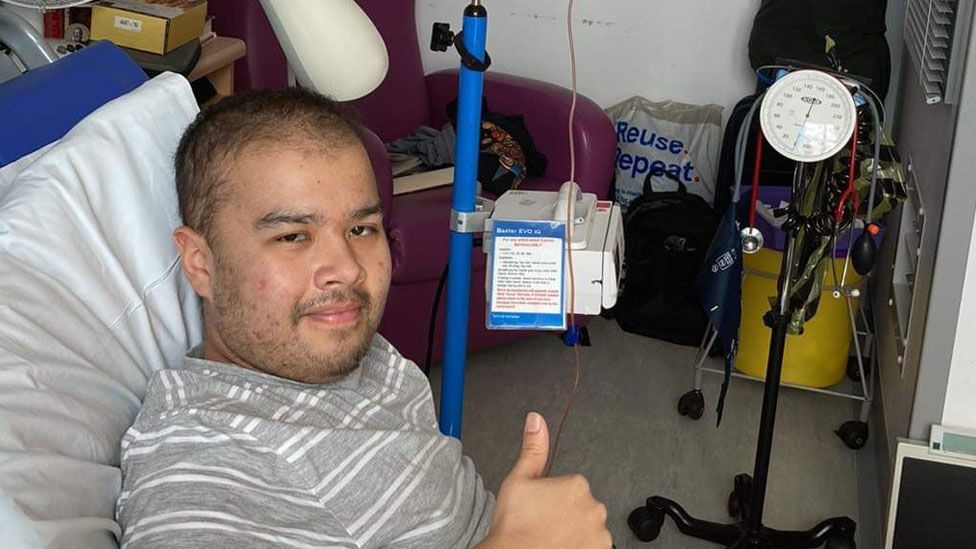ARTICLE AD BOX
 Image source, Leukaemia UK
Image source, Leukaemia UK
Jake Andrade discovered the rare form of cancer had returned when he was studying politics and history at university
By Katy Prickett
BBC News, Suffolk
A 21-year-old man said he has "learned not to take life for granted" after recovering from leukaemia twice.
Jake Andrade, from Stowmarket, Suffolk, was 13 when he was diagnosed with a rare form of the blood cancer. He then suffered a relapse at university.
Leukaemia UK chief executive Fiona Hazell said spotting the signs and asking for a blood test "can make a meaningful difference" to treatment.
Image source, Leukaemia UK
Image caption,He hoped he had beaten the leukaemia after first experiencing treatment in his early teens
"Leukaemia likes to show in common symptoms. Everyone gets a cold from time to time and everyone gets tired," said Mr Andrade.
"It is important to get checked out if your symptoms are worsening."
It was back in 2016 that he experienced a persistent cold, alongside back and shoulder pain and breathlessness.
"The lymph nodes in my neck were also very swollen," he said.
Image source, Leukaemia UK
Image caption,The 21-year-old is now backing Spot Leukaemia, a campaign from charities Leukaemia Care and Leukaemia UK to identify the most common symptoms of the disease
Initially his GP receptionist turned him down for an appointment saying, "we don't treat colds".
But his symptoms worsened and when he attended the GP with a swollen throat and a painful earache, he was immediately sent to the A&E for blood tests.
A day later, the 13-year-old was sent to Addenbrooke's Hospital in Cambridge, where he was told he had acute myeloid leukaemia (ALM).
He was finally allowed home in October 2016, after four rounds of "brutal" chemotherapy and a bone marrow transplant.
Spot Leukaemia
- Fewer than 1% of UK adults can accurately identify the most common leukaemia symptoms, according to a survey
- They are fatigue, repeat infections, unusual bleeding and unexplained bruising
- It is a form of blood cancer which affects people of all ages
- A blood test is the most simple and effective way to diagnose it
Mr Andrade got on with his life, but in 2021, while at the University of Suffolk, Ipswich, a routine blood test revealed the ALM was back.
"Treatment was gruelling, especially the effects, such as high fevers and infections," he said.
This time he experienced three rounds of chemotherapy and a bone marrow transplant from his father Nelson, and has since completed his degree.
However, the 21-year-old has now had the maximum number of treatments possible and continues to experience gruelling after-effects called graft vs host disease.
Ms Hazell said: "Each day in the UK, 27 people are diagnosed with leukaemia and despite decades of progress, only half of leukaemia patients will live longer than five years after diagnosis.
"I'm fully focused on living my best life and when I'm well, I make the most of life," said Mr Andrade, as he backed Spot Leukaemia, a campaign by from charities Leukaemia Care and Leukaemia UK.
Follow East of England news on Facebook, Instagram and Twitter. Got a story? Email eastofenglandnews@bbc.co.uk or WhatsApp 0800 169 1830
Related Internet Links
The BBC is not responsible for the content of external sites.

 1 year ago
35
1 year ago
35








 English (US) ·
English (US) ·